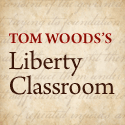1. God the great Creator of all things doth uphold, direct, dispose, and govern all creatures, actions, and things, from the greatest even to the least, by his most wise and holy providence, according to his infallible foreknowledge, and the free and immutable counsel of his own will, to the praise of the glory of his wisdom, power, justice, goodness, and mercy.
2. Although, in relation to the foreknowledge and decree of God, the first Cause, all things come to pass immutably, and infallibly; yet, by the same providence, he ordereth them to fall out, according to the nature of second causes, either necessarily, freely, or contingently.
3. God, in his ordinary providence, maketh use of means, yet is free to work without, above, and against them, at his pleasure.
4. The almighty power, unsearchable wisdom, and infinite goodness of God so far manifest themselves in his providence, that it extendeth itself even to the first fall, and all other sins of angels and men; and that not by a bare permission, but such as hath joined with it a most wise and powerful bounding, and otherwise ordering, and governing of them, in a manifold dispensation, to his own holy ends; yet so, as the sinfulness thereof proceedeth only from the creature, and not from God, who, being most holy and righteous, neither is nor can be the author or approver of sin.
For further study see:
- WSC Q11: What are God’s works of providence?
- WSC Q12: What special act of providence did God exercise toward man in the estate wherein he was created?
- WLC 18: What are God’s works of providence?
- WLC 19: What is God’s providence towards the angels?
- WLC 20: What was the providence of God toward man in the estate in which he was created?

